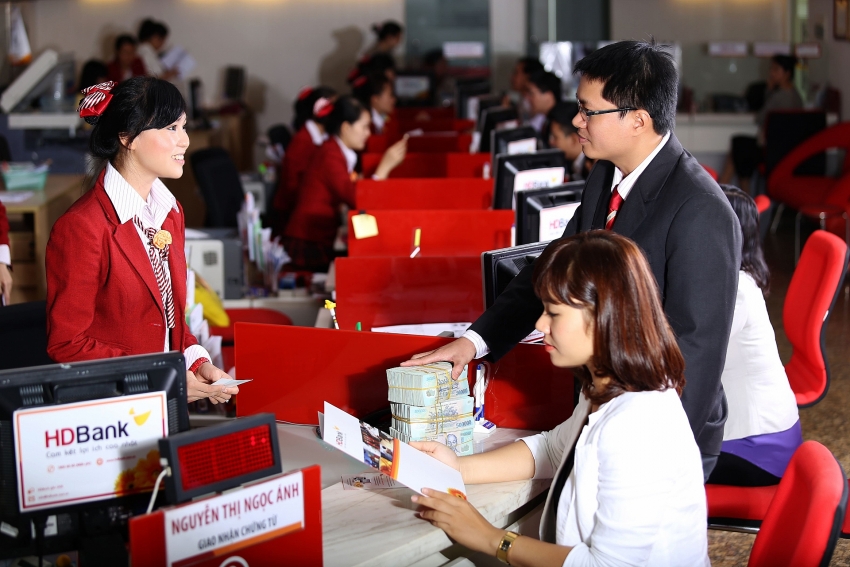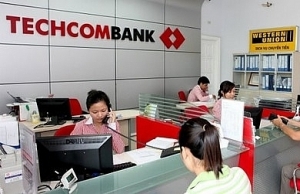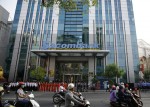Moody's: Widening gap in asset quality and profitability performance
Moody’s opinions have been made based on the full-year 2017 results for the 14 Vietnamese banks, including state-owned banks VietinBank, BIDV, Vietcombank and commercial banks such as ACB, Techcombank, Sacombank, Maritime Bank and other, by contrast, capitalisation deteriorated because of rapid asset growth and cash dividends.
In addition, the banks’ funding profiles weakened mildly, as they increased their reliance on market-sensitive liabilities – mainly borrowings from other banks – to fund loan growth with cheap short-term funding sources, Moody’s Investors Service said in its announcement in March 6.
 |
| Widening gap in banks' asset quality and profitability performance |
Moody’s based its findings on the full-year 2017 results of the 14 Vietnamese banks, including state-owned banks VietinBank, BIDV, Vietcombank and commercial banks like ACB, Techcombank, Sacombank, and Maritime Bank.
By contrast, capitalisation deteriorated because of rapid asset growth and cash dividends. In addition, the banks’ funding profiles weakened mildly as they increased reliance on market-sensitive liabilities—mainly borrowings from other banks—to fund loan growth with cheap short-term funding sources, Moody’s Investors Service said in its announcement on March 6.
“For 2018, we expect that the banks will continue to improve asset quality and profitability, while capitalisation will weaken,” said Eugene Tarzimanov, Moody’s vice president and senior credit officer.
“However, the credit profiles of banks with stronger capital buffers and lower asset risks will be further distanced from the other banks,” said Rebaca Tan, an analyst at Moody’s.
Regarding asset quality, Moody’s noted that the improvements in 2017 were helped by problem asset recoveries and write-offs, as well as credit growth. The asset-weighted average problem loans ratio at the 14 rated banks fell to 5.7 per cent at the end of 2017 from 6.7 per cent the year before.
Notably, four of these banks, including Techcombank, fully wrote off Vietnam Asset Management Company (VAMC)’s bonds that they had received in exchange for problem assets, and Moody’s expects more such write-offs in 2018.
Problem loan coverage ratios also improved, although they are still at levels which are weak by international standards.
Moody’s said that the banks’ asset quality will improve further in 2018, due to recoveries, but rapid credit growth could mask asset risks.
| For 2018, we expect that the banks will continue to improve their asset quality and profitability, while capitalisation will weaken. |
Regarding profitability, Moody’s points out that the banks' asset-weighted average return on assets rose to 0.9 per cent in 2017 from 0.7 per cent in 2016. Profitability will continue to improve in 2018 on the back of the same factors that drove up profitability in the year prior, in particular, robust macroeconomic conditions and growth in core incomes.
As for capitalisation, the asset-weighted average ratio of tangible common equity to total assets for the banks slipped to 5.5 per cent in 2017 from 5.7 per cent in 2016, pressured by declines at government-owned banks, in particular.
Nevertheless, some banks, such as VPBank (B2 stable, b3), Techcombank (B2 stable, b2), and HDBank (B2 stable, b3), strengthened their capital bases through the sale of new shares.
Moody’s expects that more Vietnamese banks will increase capital by issuing new shares in 2018. However, overall capitalisation levels will remain under pressure from credit growth and dividend payments over the next 12 months.
Moody’s explains that in terms of funding, the banks’ funding profiles weakened moderately, as seen by the system-wide asset-weighted average loans-to-deposits climbing to 86 per cent in 2017 from 85 per cent in 2016. This trend could continue in 2018, because loan growth remains rapid.
 | Moody’s shows optimism about bad debt resolution in Vietnam’s banks Some Vietnamese banks have made meaningful progress in the resolution of legacy problem assets, a positive credit for the sector, Moody’s said on Monday. |
 | Moody's downgrades Sacombank Ho Chi Minh City-based Sacombank’s long-term deposit and issuer ratings have been downgraded to Caa1 from B3 by Moody’s Investors Service. Its ratings outlook remains ... |
 | Moody’s affirms ratings of eight Vietnamese banks Moody’s Investors Service on May 3 affirmed the long-term and short-term deposit and, where applicable, issuer and senior debt ratings of eight banks in Vietnam ... |
 | Moody’s revises Vietnam outlook as “positive” Today, Moody’s Investors Service has reaffirmed the Vietnamese government’s B1 issuer and senior unsecured ratings and revised the outlook to “positive” from “stable,” lauding its ... |
What the stars mean:
★ Poor ★ ★ Promising ★★★ Good ★★★★ Very good ★★★★★ Exceptional
Related Contents
Latest News
More News
- Banking sector targets double-digit growth (February 23, 2026 | 09:00)
- Private capital funds as cornerstone of IFC plans (February 20, 2026 | 14:38)
- Priorities for building credibility and momentum within Vietnamese IFCs (February 20, 2026 | 14:29)
- How Hong Kong can bridge critical financial centre gaps (February 20, 2026 | 14:22)
- All global experiences useful for Vietnam’s international financial hub (February 20, 2026 | 14:16)
- Raised ties reaffirm strategic trust (February 20, 2026 | 14:06)
- Sustained growth can translate into income gains (February 19, 2026 | 18:55)
- The vision to maintain a stable monetary policy (February 19, 2026 | 08:50)
- Banking sector faces data governance hurdles in AI transition (February 19, 2026 | 08:00)
- AI leading to shift in banking roles (February 18, 2026 | 19:54)

 Tag:
Tag:




















 Mobile Version
Mobile Version